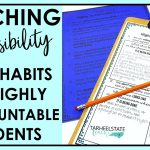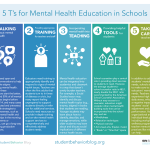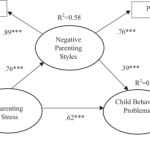Table of contents
Developing Self-Regulation in Children: A Guide for Parents
The ability to self-regulate is one of the most important life skills that we can help our children develop. Self-regulation is the ability to understand and manage emotions, thoughts, and behaviors in order to reduce stress and maximize productivity.
In this article, we will look at the importance of teaching self-regulation, the benefits of developing self-regulation in children, and provide some tips to help parents support their children as they learn how to self-regulate.
Importance of Teaching Self-Regulation
Self-regulation is an essential skill for all people, but especially for children, as it can help them cope more effectively with emotions and all aspects of life. It is also linked to other important skills such as problem-solving and empathy.
Having the ability to self-regulate can help children to stay focused and motivated. For example, if they become frustrated or experience difficulty with a task, they can take the necessary steps to calm themselves down and regulate their emotions in order to continue working on the task.
Having strong self-regulation skills can also lead to better relationships with others. By being able to manage their own emotions, children are better able to identify and manage the emotions of those around them, which is a key part of forming successful relationships with others.
Benefits of Developing Self-Regulation in Children
Learning self-regulation can have many benefits for children, both in the short and long term. Here are just a few of the main benefits:
- Reduce feelings of stress and anxiety
- Increases focus and motivation
- Improves problem-solving skills
- Enhances relationships with others
- Contributes to better decision-making
All of these benefits can help children to have more successful outcomes in all areas of their life, be it academically, socially, or professionally.
Tips to Help Teach Self-Regulation
Teaching self-regulation is an ongoing and long-term process and will require patience, consistency, and practice. However, there are some tips that can help parents support their children through the process.
- Model self-regulation. As a parent, it is important to set a positive example and model how to manage emotions and behaviors in a positive way.
- Validate feelings. Make sure that your child knows that it is okay to have feelings and it is important to recognize and acknowledge them.
- Encourage reflective behavior. Encourage your child to reflect on their behavior and the consequences of their behavior.
- Develop consistent routines. Having consistent routines can help children to understand expectations and gain mastery in self-regulation.
- Provide reassurance. Make sure to offer your child reassurance and love when they are struggling and help them to build their self-confidence.
Conclusion
Strong self-regulation skills are essential for children of all ages and can help them to be successful in all aspects of life. It is important to understand the importance of teaching self-regulation and to provide children with the necessary skills and support to develop these skills.
By following the tips outlined in this article, parents can be better equipped to help their children learn how to self-regulate, thus giving them the best chance of achieving success.






